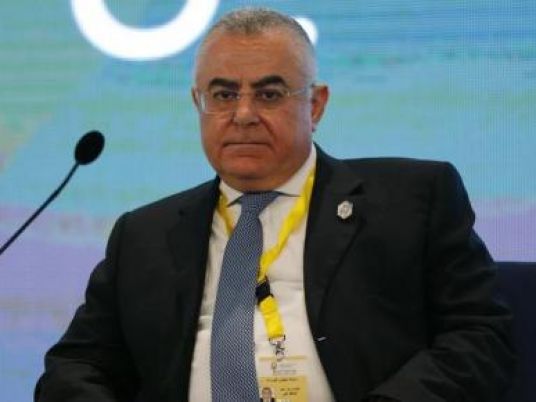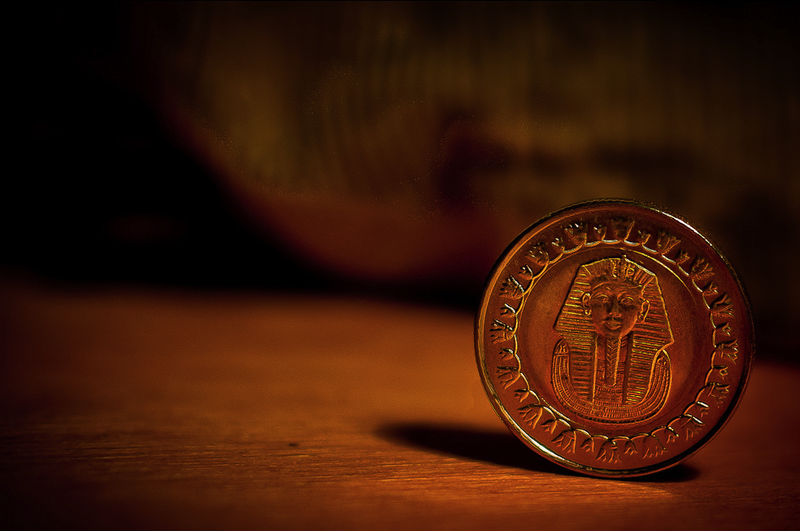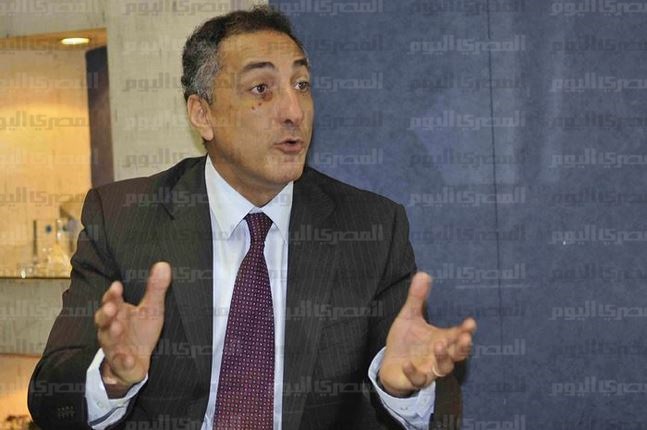
Egypt has named senior banker Tarek Amer to head the central bank from November, in a move welcomed by traders who expect a new approach that could help ease the country's currency crisis.
Governor Hisham Ramez, whose term ends on Nov. 26, has faced increasing criticism for his reluctance to devalue the Egyptian pound, which has come under sustained pressure.
Instead, he has sought to tame a currency black market by imposing a cap on dollar-denominated bank deposits. That and other measures have angered local businesses starved of foreign currency to pay for imports.
With the central bank selling dollars to defend the pound, Egypt's foreign exchange reserves have tumbled from $36 billion in 2011 to $16.3 billion in September, enough to cover just over three months of imports.
"Diligent efforts should be exerted to provide citizens with basic commodities including food, medicine, and fuel, and to control prices and strengthen relevant oversight tools," the presidency said in a statement announcing the personnel change.
Amer, a former central bank deputy governor who was also chairman of the National Bank of Egypt (NBE) from 2008-2013, is popular in financial circles. Unlike Ramez, he is credited with having a collaborative approach to management.
"He is a great visionary leader and more importantly he always worked on achieving that vision. The numbers back it up. He led the NBE to unprecedented profit margins," said a senior banker who worked under Amer during his tenure as NBE chairman.
It is not clear yet how Amer might change Egypt's approach to managing the value of its currency versus the dollar. Bankers and economists say the central bank's insistence on maintaining an over-valued pound has created uncertainty, which in turn has discouraged foreign investors.
Under Ramez, the central bank had kept the pound steady at LE7.5301 to the dollar for the five months until July, then allowed it to slide to LE7.6301 as pressure built. It later let it slip by a further LE0.10 on July 5.
Early this month, Ramez introduced another round of devaluation, weakening the pound to LE7.8301 on Oct. 15, and followed that by another LE0.10 devaluation on Oct. 18.
The dollar was trading at LE 8.62 on the black market after the announcement, two traders said, unchanged from the day before.
Along with currency controls, Ramez also created a priority list that banks must abide by in distributing dollars. Strategic goods such as food and medicine are at the top of the list.
Ahmed Shiha, head of the importers' division at the Cairo Chamber of Commerce, said he was optimistic that Amer would devalue the pound further and restore stability to the market.
"I think there will be quick decisions taken and this will reflect on the stability of the dollar market, and I expect that there will be weakening in the pound versus the dollar because he has expertise and he will take control," he said.
Allowing a controlled weakening of the pound could boost exports and attract further investment. But it would also increase Egypt's already large bill for imported fuel and food and might fuel inflation in a country that depends on imports and where millions live hand to mouth.
Egypt's economy grew about 4.2 percent last fiscal year and the government forecasts growth of 5 percent in 2015/16. It is struggling to return to the growth enjoyed before a 2011 uprising deterred foreign investors and discouraged tourists.
But critics said dollar restrictions had hampered business activity overall and could ultimately hurt growth.



